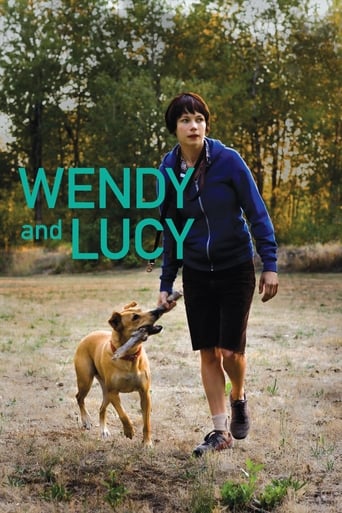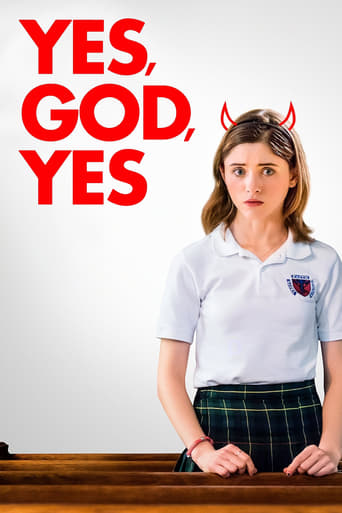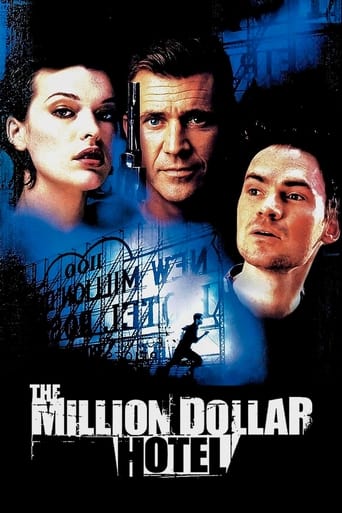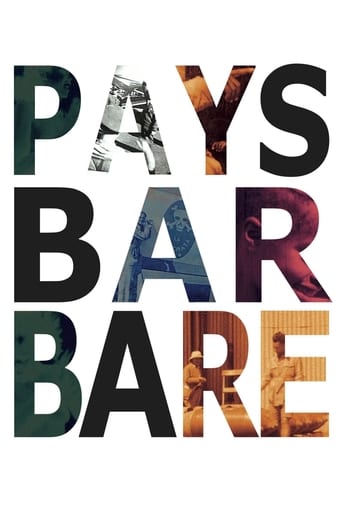Wendy and Lucy (2009)
A near-penniless drifter's journey to Alaska in search of work is interrupted when she loses her dog while attempting to shoplift food for it.
Watch Trailer
Cast


Similar titles
Reviews
Wendy Carroll (Michelle Williams) is driving to Alaska with limited cash and her dog Lucy. Her car breaks down. She tries to steal some dog food and gets caught. She had tied Lucy up in front of the grocery store. When she returns from getting arrested, Lucy is gone. There is a friendly security guard. Lucy isn't at the pound. Bill the mechanic (Will Patton) charges Wendy the few bucks she has left.This is a generally slow movie. There are instances of harrowing tension. There is some tension hoping for good things but expecting bad things to happen to Wendy. It's a series of bad things with some poignant moments. The ending is a little weak. With the way things are going for Wendy, I expect the ending to be a lot more heart-breaking and a lot more final. Riding off into the sunset isn't definitive enough.
Simplicity, when employed wisely, can serve as an enhancement. Subtlety almost always does. Of all the films I've seen in recent months, including high budget productions and much artistry, this quiet drama with few words, a simple plot and more suggestions than out-spun explanations about the protagonist's background has hypnotised me the most. Everything about this film is just right, every word, however mundane. The carrier is without doubt the lead actress: she's done her job if you feel the person on screen actually has to exist, and you do. Williams is perfectly cast; it's perfect if one is convinced that no other should have played a part. Beside this Wendy's plight might feel awfully familiar to some. Feel, as it is the making that successfully makes the bleak experience of being stranded in a town with a possibly even bleaker past and no real idea about the future tangible. The film is to a large degree an in-between the lines reader. And nothing is added that isn't necessary. Very well done, by anyone involved.
Wendy and Lucy works because it's straightforward and to the point, and because there's no pandering or melodrama. The bare bones approach, with no actual film score and the way the story simply pans out in the span of a few days, is incredibly investing, and also quite moving. Michelle Williams dominates the screen, and she's practically all we see in almost every scene. She doesn't say much or have to do much, but Michelle Williams' presence is enough to radiate the screen with her warmth and sympathy. It's not just the careful writing and graceful directing that drives this film, but Williams. This is probably her second best performance after Blue Valentine, and it's still a wonder how much she can do with so little.
"Thirty years ago it would have been widely accepted that objective knowledge about society and history was an asset for a filmmaker. Better film artists adopted a serious attitude toward social life and aesthetics. Today, such an attitude is considered a hindrance. Pastiche, improvisation, surface gloss are highly valued; art is apparently produced by the organisation of clever accidents. This is a temporary state of affairs, but a costly and destructive one. Art, including bad art, has consequences." - David Walsh Cinema has a long history of using tales of youths and their dogs (or other animals, think Loach's "Kes") as an entryway into issues of poverty and social injustice. One of the best of these films is Pereira dos Santos' "Vidas Secas" (also see de Sica's "Umberto D"), one of the defining films of Brazil's cinema novo."Wendy and Lucy", a quietly devastating film by Kelly Reichardt, updates these films and sets them in contemporary America. It opens on Wendy, beautifully played by actress Michelle Williams, and her beloved dog Lucy, as they stroll through Oregon's woodlands. It's a postcard image of a girl and her dog, but one which gets increasingly perverted as the film progresses. And so gradually it becomes clear that Wendy has very little money, lives out of her car, is on her way to Alaska hoping to find employment and that Lucy is the only creature in the world with whom Wendy has a close emotional connection. When Wendy's meagre possessions are taken away from her bit by bit, she increasingly finds herself desperately clutching at straws, not only to survive, but to maintain her sanity. By the end of the film, Wendy's given away everything she has: to possess anything is a burden and debt she cannot maintain.Today in the US, millions hang by their fingernails, and yet you wouldn't know this by the kinds of films routinely churned out, both Hollywood and independent cinema doing as much as they can to ignore contemporary life. Today, over forty five million Americans are living in poverty, over ten million now receive unemployment benefits, the middle class continues to shrink, nationwide bankruptcy has risen above 20 percent and those fortunate to have a job or jobs work long hours for relatively little. Yes, capitalism and its inherent contradictions continue to rumble on - business as usual - but there's also a certain amount of denial at work."We began writing the script after Hurricane Katrina, when the contempt (for those less fortunate) was in the air," Reichardt explains. "if you're poor in America, the perception is that its because you're lazy. As the gap between rich and poor has grown over eight years, so has the feeling that it's okay." So one of the best things about "Wendy and Lucy" is the way its ambiguity practically baits you into chastising Wendy, inducing the kind contempt many have for the homeless and impoverished. Why is Wendy alone? Why is she on the streets? Why doesn't she get a job? (capitalism requires 10-25 percent unemployment) Can't she work? Is she mentally ill? Is she lazy? What exactly is her story? But Reichardt leaves all these questions unanswered. What we do know is that she's in flight because she can't handle or cope with a system which itself refuses to cope with her. Wounded by the world, her sad response is to then exit it. Worse still, despite the meagre acts of kindness thrown her way, society as a whole is structured such that it actively forces Wendys out, like a disease or infection slowly being purged. Meanwhile, the great doctors deny the presence of any illness.Throughout the film, Reichardt practically baits us into damning Wendy based on contemporary conceptions of worth (typically built upon economic productivity). Nevermind that, creepily, her only companion is an animal. No, her disconnection is her fault! Her dollar value is nil, she acts with impracticality and she deserves expulsion. Sever the life lines. She contributes nothing. She is the allowable, acceptable loss of an entire culture. Right? Like her lost car, friends, family and possessions, society has deemed it cheaper and more practical to scrap Wendy – and the whole social segment she represents – rather than repair the damage. This is an unconscious decision by all of society that is as sinister as the most calculated of atrocities.One of the best things the film does is highlight how ineffectual "altruistic" human relations, rules, bureaucracy and regulations are to someone like Wendy. People offer whatever help they can, and yet she falls through the cracks nevertheless. It's a band aid on a waterfall, set up to create not only mass disavowal, but to reinforce the illusion that once again it's the fault of the deprived; "The safety nets were in place, it's her fault she wasn't caught!" Thankfully, "Wendy" isn't an overtly preachy film. Its only allusions to larger issues are a brief shot of "Sometimes a Great Notion", a class conscious novel by Ken Kesey, and the humming of Carnival Of Venice, possibly alluding to the Venetian celebration in which the poor and rich fraternise, but only with masks. And yet in its own low key way, the film taps into a certain American pulse: familial instability, rootlessness, adrift, sub-social young people, a wide and widening social condition, economic desperation, a society that has no room or need for millions, and the inevitable inequality manufactured by capitalism and "surplus value".Final shot: Wendy in a boxcar, creepily humming the same amiable song she hummed at the start of the film. Earlier she has a frightful encounter with a homeless man, a confrontation with her own scary future. Now she has nothing but her body, and it seems like she's about to, suicidally, abandon that too.8.9/10 - Excellent. Williams plays Lucy with powerful subtlety, allowing you to read her silence.













